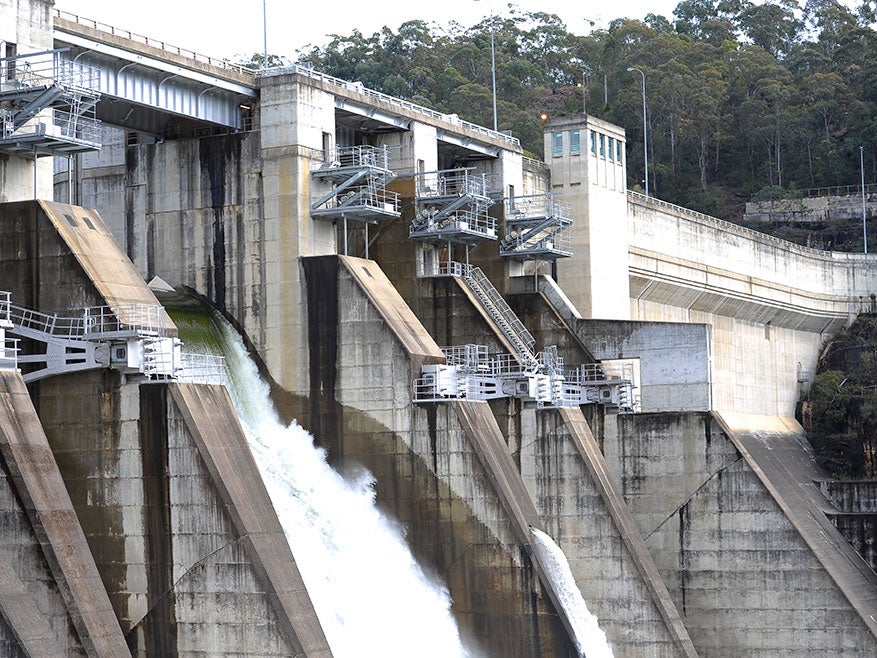Giant Sydney dam spills over after heavy rainfall
The Warragamba Dam is the largest urban water storage supply in Australia

Sydney's Warragamba Dam is spilling over for the first time in two years after heavy rain and storms battered the region.
The dam, which is about 70km west of New South Wales' capital, is Australia’s largest urban water storage supply and provides around 80 per cent of th city's drinking water.
Storms and heavy rain which began on Monday caused the dam to overflow.
The spill is expected to last for a few days and authorities have warned that flooding could occur.
Since Monday, the State Emergency Services said there had been almost 90 flood rescues for people and animals.
Australia's Bureau of Meteorology warned that minor flooding was likely to occur in the Hawkesbury and Neapean rivers because of the dam overflowing, but downgraded its severe weather warning for New South Wales.
The majority of the dam’s spill was expected to happen on Thursday afternoon and early evening, the BBC reported.
However, Gordon McKay, from the bureau, said he did not expect any properties to be flooded.
The Sydney Catchment Authority said on their website that the dam was spilling through the central drum gate.
“The spill from the dam many continue for a number of days," he said.
"Following the spill the water level in the dam will be lowered down to just below full supply level with small discharges from the dam. This is part of post flood procedures.”
Associate Professor Stuart Khan, from the University of New South Wales, told the Sydney Morning Herald that authorities should never let the dam get completely full.
But controlled releases of water, he said, was a solution.
Professor Khan said: “Couldn’t we just manage this reservoir slightly differently, given the huge imbalance between supply security and flood risk; that we try to prevent that flood from happening, rather than work on a solution of how we get people out of there when it does?"
Join our commenting forum
Join thought-provoking conversations, follow other Independent readers and see their replies
Comments
Bookmark popover
Removed from bookmarks